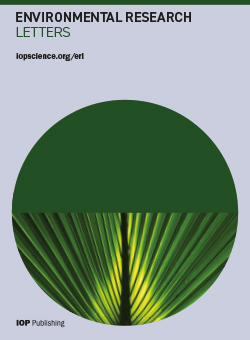权力与蛋白质--缩小 "正义差距",促进粮食系统转型
IF 5.6
2区 环境科学与生态学
Q1 ENVIRONMENTAL SCIENCES
引用次数: 0
摘要
蛋白质的转变或过渡需要在全球范围内减少动物源性食品的生产和消费,增加植物性食品和替代蛋白质。这种转变的主要动机是需要最大限度地减少食品系统对社会生态系统的影响。我们认为,与其仅仅关注膳食中 "蛋白质差距 "的转变,纠正 "公正差距 "才是粮食系统转型变革的先决条件。在这种情况下,"公正差距 "被理解为那些能够享受公正食品系统的人与那些不能享受公正食品系统的人之间的差距。为了证实我们的论点,我们使用了正义视角来分析这种变革的政治经济层面,并提出未来的蛋白质必须具备三个核心要素--破坏、创新和再分配,才能实现变革。颠覆需要挑战鼓励饮食 "肉食化 "的食品趋势,以及 "大肉食 "对这些趋势的影响。创新强调,真正的创新是通过在实践和流程中设计公正,而不是在现有的食品系统范式中发射替代蛋白质银弹来实现的。重新分配强调,食品系统的重新设计要以建立剩余蛋白质预算的公平份额为前提,使用的方法要立足于具体情况和立场。通过应用正义框架,我们揭示了与蛋白质生产和消费相关的现有粮食系统的不公正现象,就如何解决这些不公正现象展开讨论,并思考对粮食系统转型的影响。通过围绕正义差距这一更突出的问题来重塑蛋白质辩论的核心,粮食系统的转型就可以形成。本文章由计算机程序翻译,如有差异,请以英文原文为准。
Power & protein—closing the ‘justice gap’ for food system transformation
The protein shift, or transition, entails a reduction in the production and consumption of animal-source foods, and an increase in plant-based foods and alternative proteins, at a global level. The shift is primarily motivated by the need to minimise the impact of the food system on social-ecological systems. We argue that rather than focusing singularly on transitioning a ‘protein gap’ in diets, redressing the ‘justice gap’ is a prerequisite for transformative change in food systems. In this context the justice gap is understood as the gap delineating those who have access to just food systems and those who do not. To substantiate our argument a justice lens is used to analyse the political–economic dimensions of such a transformation and to propose that the future of protein must engage with three core elements to be transformative—disruption, innovation and redistribution. Disruption entails challenging both the food trends that encourage the ‘meatification’ of diets, and the influence of ‘Big Meat’ in perpetuating these trends. Innovation emphasises that true novelty is found by designing justice into practices and processes, rather than by firing alternative protein silver bullets within existing food system paradigms. Redistribution stresses that food system redesign is predicated upon establishing fair shares for remaining protein budgets, using approaches anchored in contextual specificity and positionality. Through the application of a justice framework, we expose existing food system injustices related to production and consumption of protein, invite discussion on how such injustices can be addressed and reflect on implications for food system transformations. By reshaping the crux of the protein debate around the more salient concern of the justice gap, food system transformation can take shape.
求助全文
通过发布文献求助,成功后即可免费获取论文全文。
去求助
来源期刊

Environmental Research Letters
环境科学-环境科学
CiteScore
11.90
自引率
4.50%
发文量
763
审稿时长
4.3 months
期刊介绍:
Environmental Research Letters (ERL) is a high-impact, open-access journal intended to be the meeting place of the research and policy communities concerned with environmental change and management.
The journal''s coverage reflects the increasingly interdisciplinary nature of environmental science, recognizing the wide-ranging contributions to the development of methods, tools and evaluation strategies relevant to the field. Submissions from across all components of the Earth system, i.e. land, atmosphere, cryosphere, biosphere and hydrosphere, and exchanges between these components are welcome.
 求助内容:
求助内容: 应助结果提醒方式:
应助结果提醒方式:


